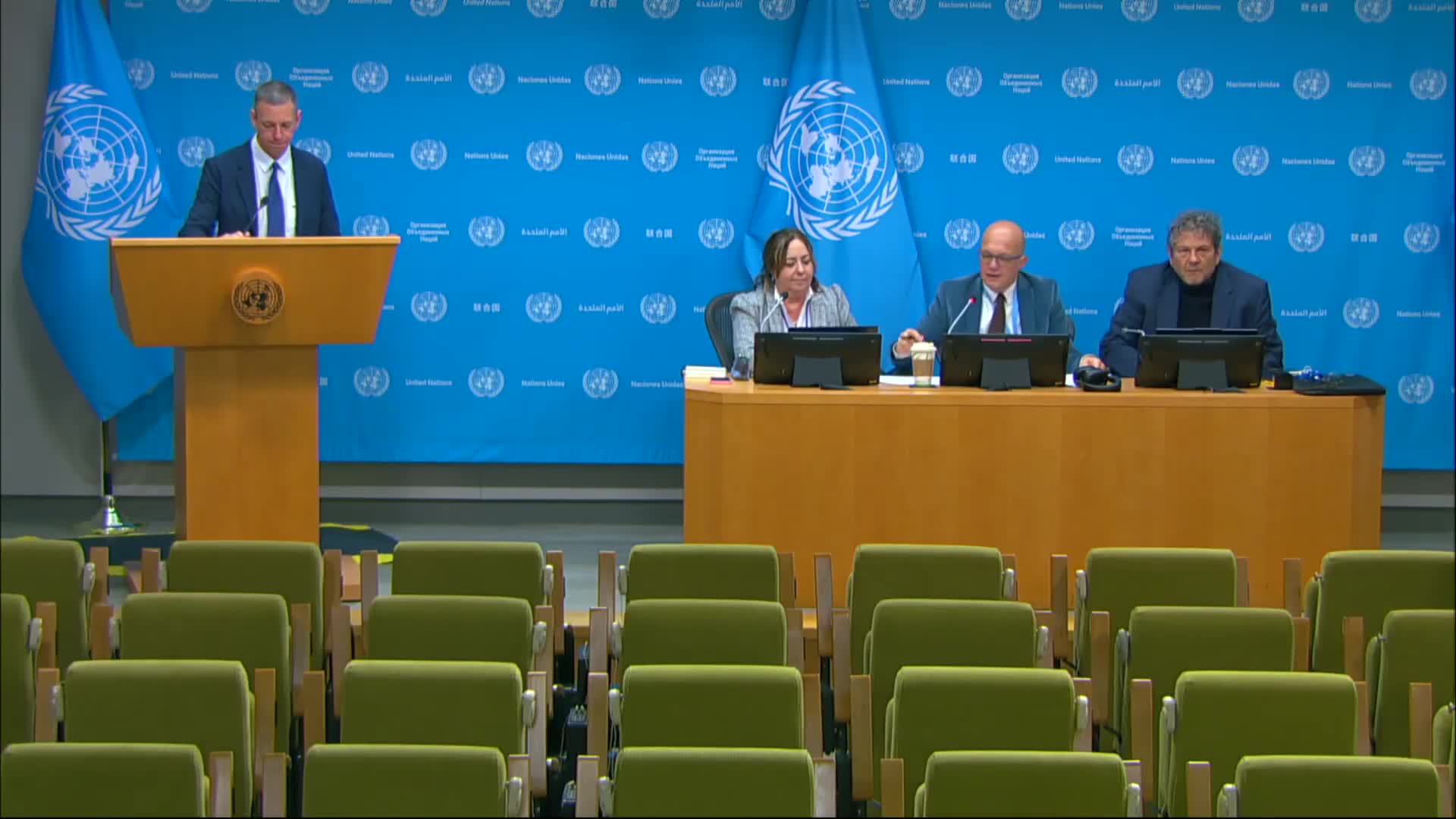U.N. experts say Nicaragua is using international systems and domestic power to repress opponents, urge ICJ referral
Get AI-powered insights, summaries, and transcripts
Subscribe
Summary
Jan Michael Simon, chair of the Group of Experts on Nicaragua appointed by the U.N. Human Rights Council, told reporters that the Ortega-Murillo government has combined use and abuse of international mechanisms with a domestic crackdown to evade scrutiny and persecute opponents.
Jan Michael Simon, chair of the Group of Experts on Nicaragua appointed by the U.N. Human Rights Council, told reporters that the Ortega-Murillo government has combined use and abuse of international mechanisms with a domestic crackdown to evade scrutiny and persecute opponents.
"The goal is to avoid scrutiny and accountability while continuing to perpetrate human rights violations," Simon said, describing what he called a dual strategy in which Nicaraguan authorities "have been leveraging Interpol and the money laundering and counter financing and terrorism...frameworks to persecute transnationally opponents." (Transcript: 00:00:51–00:03:37.)
Ariela Peralta DeStefano, an expert with the group, said a phase of repression that began in 2023 is aimed at consolidating executive control through simultaneous mass arrests and prolonged incommunicado detention. "We have documented at least 74 cases of enforced disappearances. In 27 of these cases, the individuals remain disappeared to this day," she said, and the group reported credible information on an additional nine people believed to have been disappeared. The experts cited the November 2024 detention of at least 40 political opponents whose whereabouts were concealed for about two weeks as a clear violation of international law. (Transcript: 00:03:45–00:05:52.)
Reid Brody, an expert with the group, said the government has extended repression beyond Nicaragua's borders by denying documents and nationality to exiles, leaving many effectively stateless. "452 persons have been deprived of their nationality by court order," Brody said, and others have been refused passport renewals or access to official documents. The group identified 54 officials it says are responsible for grave human rights violations and urged states to consider legal action. (Transcript: 00:07:38–00:10:44.)
The experts also referenced violence against opponents abroad and named the June 19, 2025 killing of a Nicaraguan opponent in Costa Rica, saying Costa Rica's attorney general has a "strong line of investigation" that the assassination was ordered for political reasons. The group said the widespread use of arbitrary deprivation of nationality "is a manifest violation of the U.N. Convention on the Reduction of Statelessness" and urged states "to bring Nicaragua before the International Court of Justice" for that violation. (Transcript: 00:05:53–00:10:44.)
Why it matters: The experts presented their findings to the U.N. General Assembly earlier the same day and told reporters the pattern they documented—mass arrests, enforced disappearances, denial of nationality, and the alleged manipulation of international mechanisms—undermines international cooperation and could increase risk for Nicaraguans both inside and outside the country. The group called for accountability measures, including possible international litigation. (Transcript: entire briefing.)
What the experts documented: at least 74 enforced disappearances (27 still disappeared, nine additional credible cases cited); detention episodes in which detainees' whereabouts were concealed for weeks (Nov. 2024 example); 452 people stripped of nationality by court order; identification of 54 officials allegedly responsible for abuses.
The experts did not propose a specific judicial procedure or timeline for referral to the International Court of Justice; their statement was an appeal to states and international bodies to consider legal avenues and increase scrutiny. The press briefing ended without questions from the room or online. (Transcript: 00:10:44.)
Sources and attribution: Reporting in this article is based entirely on the Group of Experts on Nicaragua's press briefing and the experts' statements to the media. Direct quotations and numerical findings are taken from the experts' remarks at the briefing. The experts presented their report to the U.N. General Assembly earlier the same day.
